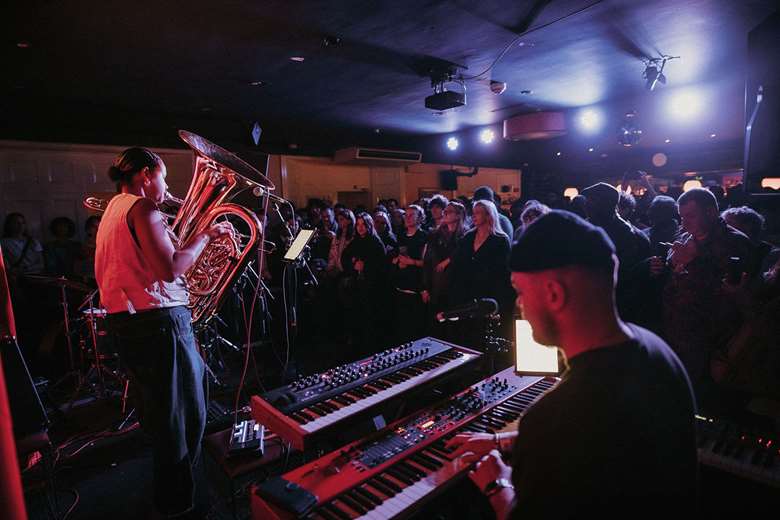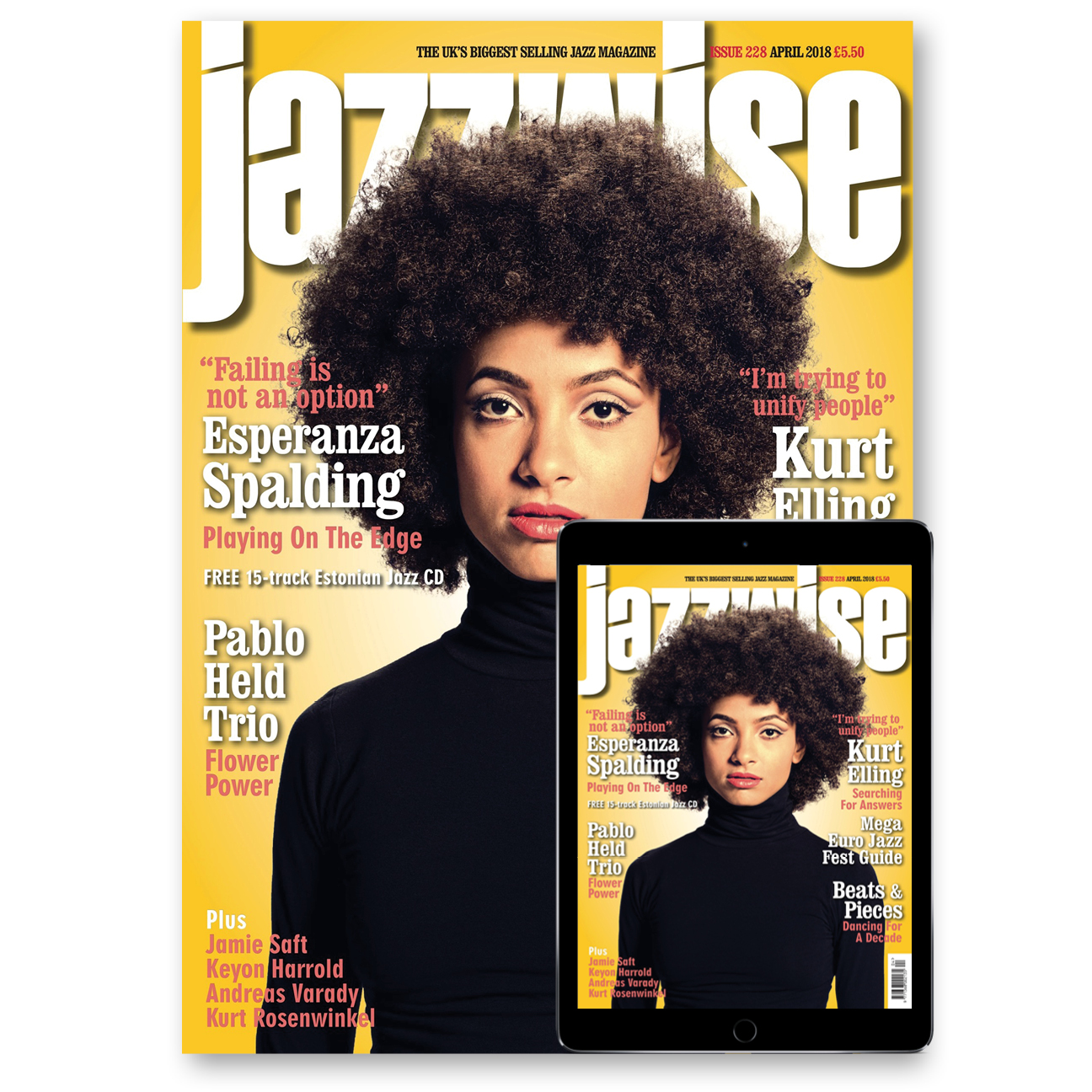Brilliant Corners: Ninety One Living Room
Peter Jones
Thursday, August 8, 2024
Peter Jones takes a trip down Brick Lane in East London to visit Ninety One Living Room, one of the capital’s most adventurous venues

What do you want from a jazz club? The answer will vary according to taste, but to the singer/composer Anjelo Disons, it’s all there at Ninety One Living Room in London’s Brick Lane.
Anjelo just happened to be around when Jazzwise came calling, but he turned out to have a lot of interesting thoughts to share.
“First of all, you know that Ninety One Living Room understands the culture, from the way they book, from the people that they have. It isn’t just about hype or anything. You can go there and find acts that you don’t even know and might not have heard of. But sometimes there are bigger names that you know and see all the time. I trust in the programme. I trust that the people there are curating, not just booking.”
The venue presents a very contemporary take on jazz, with a strong emphasis on youth, on women, and on the local black community. Its reputation is such that when Ronnie Scott’s closed for refurbishment in August (see last issue), it moved several of its shows to Ninety One.


The club was founded by Juliet Kennedy, whose employer is Truman’s Brewery, owners of the whole Brick Lane site. (Truman’s was once the world’s largest brewer, and the 10-acre Brick Lane site one of the biggest breweries on Earth. After closing in 1989, the old facility was sympathetically transformed into an ‘arts and media quarter’, home to a hive of creative businesses as well as independent shops, galleries, markets, bars, event spaces and restaurants).
Kennedy’s background is in academia: “I was a philosopher. I nearly did a PhD! I was doing really well, and then I had an epiphany. I remember it happening - I was in the library thinking about the property of a property of a property of a circle, or some absolute bollocks. I heard some students on the grass outside laughing. I looked out of the window and they were drinking cider and kissing, and I was like… what am I doing? There’s a whole world out there! And I left. But before that I’d been a musician, I’d been playing in bands, doing my own stuff. But I always lacked the confidence to put myself up there. So I feel like I’ve found my place now in the music industry. I’m so much happier behind the scenes.”
Initially hired by the Brewery to do a minor revamp of what is now the Juju bar, Juliet then started programming music there. This got her thinking about what had previously been the Vibe Bar, a few hundred yards away. “It was a sort of underground rave pit and it was sitting empty after closing down. It had an awful reputation by the end, it went really dodgy. Dodgier than dodgy. So there were all these problems with the police and the council, and it got shut down.”
The brewery were understandably reluctant at first, but Juliet promised that the new club would be completely different. “I said, I’ll make it a jazz club - a civilised jazz club. I was thinking of a Ronnie’s kind of vibe. I leaned more into the jazz scene, which I was familiar with to some extent, but I’d been programming more latin stuff at Juju’s. I’ve always just followed my taste.”
As she started to book jazz, she discovered some exceptional local artists, which led her to the whole indigenous jazz scene that has been developing in London for the last 20 years: “I wanted the tenants to use the space as their living room. It’s a bit like a listening bar, but it’s live.”
There are speakers outside, enabling passers-by to hear what’s going on inside. Such is the relaxed vibe of Ninety One, it does indeed feel a little like a pub-sized front room, with a very low stage that allows for wonderful intimacy between musicians and audience.
There is reservable seating in front of the stage, with a large area all around where people can stand or dance, if the mood takes them. Stage left is another seating area with tables. Between them Juliet has built a wooden dividing wall consisting of shelves, so you can see and hear through it.
There’s a close association at Ninety One with Adam Moses and Justin McKenzie, who started Jazz re:freshed, a weekly gig at the Mau Mau Bar in Portobello Road, back in 2003. That venue gave a platform to rising stars like Nubya Garcia, Dele Sosimi and Kokoroko, but closed down during the pandemic. Juliet approached Adam and Justin - kindred spirits - and now Jazz re:freshed are in charge at Ninety One every Thursday night.
With a young child to look after, she has recently stepped back from bookings, which are now in the hands of colleagues Aodhagán (pronounced ‘Ay-gon’) Hendry and Paddy Dalton, allowing her to concentrate full time on organising the burgeoning annual Brick Lane Jazz Festival.
This article originally appeared in the September 2024 issue of Jazzwise. Whether you want to enjoy Jazzwise online, explore our Reviews Database or our huge archive of issues, or simply receive the magazine through your door every month, we've got the perfect subscription for you. Find out more at magsubscriptions.com
